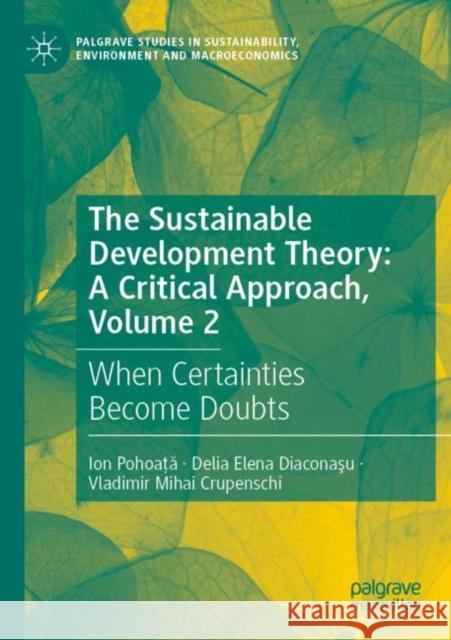The Sustainable Development Theory: A Critical Approach, Volume 2: When Certainties Become Doubts » książka
topmenu
The Sustainable Development Theory: A Critical Approach, Volume 2: When Certainties Become Doubts
ISBN-13: 9783030613242 / Angielski / Miękka / 2022
The Sustainable Development Theory: A Critical Approach, Volume 2: When Certainties Become Doubts
ISBN-13: 9783030613242 / Angielski / Miękka / 2022
cena 402,53
(netto: 383,36 VAT: 5%)
Najniższa cena z 30 dni: 385,52
(netto: 383,36 VAT: 5%)
Najniższa cena z 30 dni: 385,52
Termin realizacji zamówienia:
ok. 22 dni roboczych.
ok. 22 dni roboczych.
Darmowa dostawa!
This book explores the present conflictual relationship between the economy, the environment, and society. The current mainstream economic model is analysed from the perspective of the founding economists to review its suitability to tackle issues of sustainable development. The problems of redistribution and social justice are debated at length; alongside those concerning the giant state, degrowth, and a vision of sustainability that is founded on the idea of a self-regulating free market economy. Business cycle sustainability, anti-crisis therapy, technological unemployment, the natural rate of interest, and the Bruntland matrix are also examined.
This book aims to present a holistic approach to sustainable development where social, ecological, and economic components are balanced. It will be relevant to students and researchers interested in this topic.











